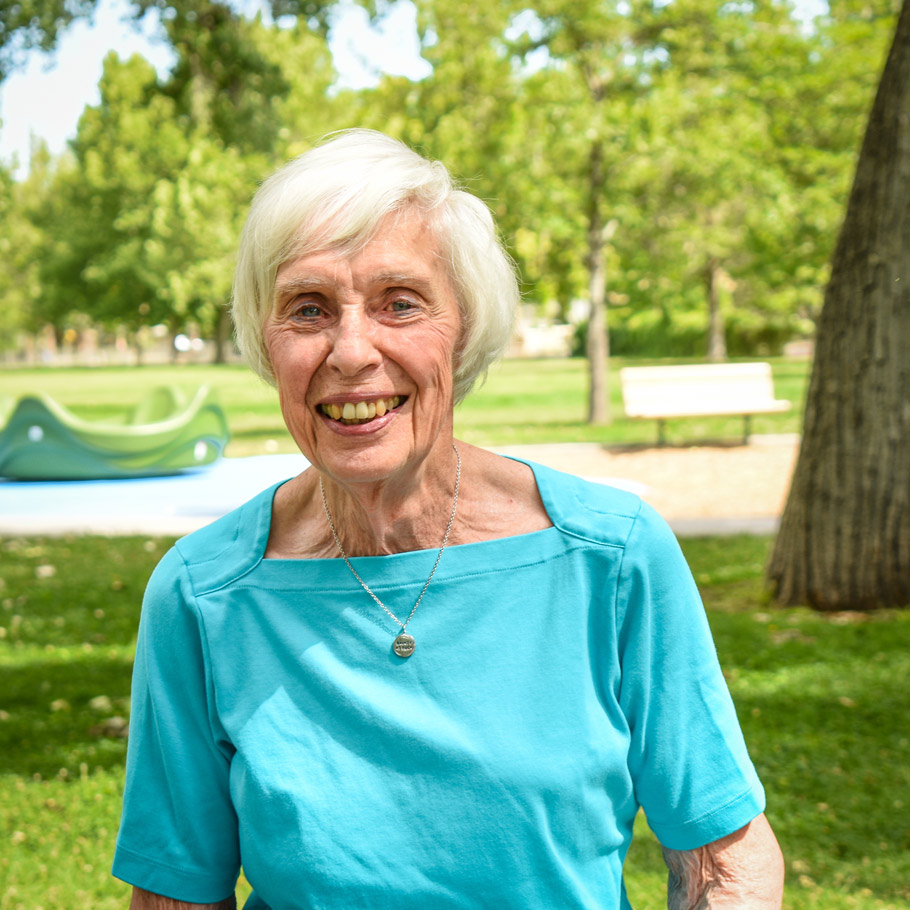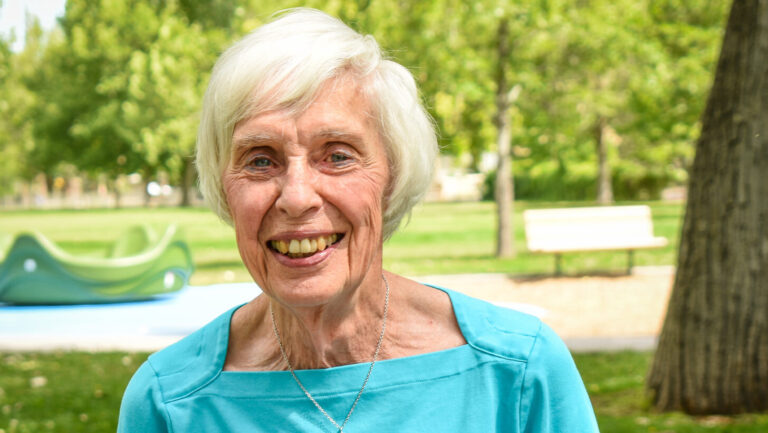This summer, on top of everything else, America is grappling with its racist past and present in a way that at least seems different. From the removal of public monuments that honored horrific people, to the reconsideration of how policing is done, our national discussion has taken on a more serious and immediate tone. The conversation is both public and personal.Carolyn Meyer is an 85-year-old white woman that has grappled with racism herself; her own. Her one-woman show is about growing up in small-town America, how racism permeated everything and how she changed her own mind. It is a personal story about a deep-rooted national problem. Weekly Alibi sat down with Meyer to talk about her own evolution in thinking about race, her one-woman show and what’s next. The following is an edited version of that conversation.Weekly Alibi: You’ve written 60 books for teenagers, primarily historical fiction, and then in your 80s you took up standup comedy. What’s the difference between speaking through some historical figure in print and telling your own story in person?Carolyn Meyer: When I’m writing about a historical person, I’m encouraged and inspired by the events of their lives. I do try to imagine myself into that person and how that must’ve felt hundreds of years ago or whenever it was. It’s been extremely freeing for me just to deal with the events of my own life and have fun with it.Your one-woman show, The Old White Lady Tells It, was on stage, but will soon be streaming. In it you talk about how you began questioning your own racist upbringing. Was that a slow, intellectual process or was it revelatory?Experiential. I didn’t philosophize my way through it growing up in essentially a racist family, which was pretty common for that time. I grew up in central Pennsylvania, just very politically and socially conservative, going to minstrel shows with my parents and seeing nothing strange about that. They got me a puppy when I was a little kid, a black Cocker spaniel, and we named it Sambo, which horrifies me now, but at the time that was a perfectly ordinary thing to do.In a small town in Pennsylvania [we would have] black entertainers come to town, Todd Duncan, I remember. I don’t know that that would be a familiar name to anyone else, but he came and gave a concert in the high school, which is where all the concerts were. [I remember] being very moved by him and his performance. Looking back on it now, I think where did he stay that night? There’s no place he could have stayed in Lewistown, Pennsylvania. You had to go onto Harrisburg or Philly or something. How did he deal with that? Then, I went off to college, a white liberal arts college. There were no negros there. You get older and start thinking back on how all that occurred. Was it a process of trial and error, like, this just doesn’t make sense?At the time it made sense. On reflection it was like, what was that about? There would be this time lag. I really wouldn’t examine it until the ’60s, with the civil rights movement, then I’d start looking back at how things had been for me during the forties and fifties. Wait a minute. What’s going on here?Can American society slowly reason its way out of our racist culture, or do we need an event of some kind to change the way we see and treat each other?Look what’s happened since George Floyd. Something really crystallized. I don’t think this is going to fade, and I hope that it focuses positively, but I’m afraid there’s going to be a lot of negativity along the way. That’s going to be met with resistance on both sides. Pushing and resistance.You have transitioned from a life of writing professionally to standup comedy of all things, but who knows when the next time you’re going to be able to be in a room with other people. So, what’s next?I’m going to scratch my head over that one, too. I’m trying to pivot. I’m developing a number of short pieces that I can perform as monologues and get them out as an audio book. Simultaneously, get all those essays together as an ebook and see how that works.Personal stories? Is that something that you’ve done throughout your life or is it now time to reflect?I collected all this stuff. I’m a big fan of David Sedaris. He’s very funny and very philosophical. A great storyteller. He has this big wacky family that he can draw on. I’m an only child, but I can draw on that. Tell me a little bit more about the show and how it’s adapted to streaming.Luckily, we had it taped, I think in the second performance. There had been some talk about filming it over again without an audience, but I react to an audience. I really need it. Put me in front of an audience. I always thought I was an introvert, but putting me in front of an audience and something happens.You’re not a trained performer.Exactly.You’re also not a historian, but you’ve got a unique perspective on the story arc of pivotal events in history from your writing. How do you think the various storylines from the global pandemic to the culture wars end?I have no idea. I’m watching it all play out along with everybody else. This is a fascinating time in history if we survive it.Your books have been primarily historical fiction centered around challenges of historical figures. Do you have any advice for young people living through this time?Pay attention. Observe it. Live it.What do you know at 85 that would have been helpful to know at 15?Probably that I’d still be alive 70 years later.The lesson is take care of your teeth?Oh my God, you really can’t depend on anything, except yourself and your own resources.Do you think you’ll reach a point in your life where you’ve said everything you want to say?Oh, hell no, I’m just getting started.
The Old White Lady Tells It streams July 25 and 26. See forumabq.com for times and tickets.










